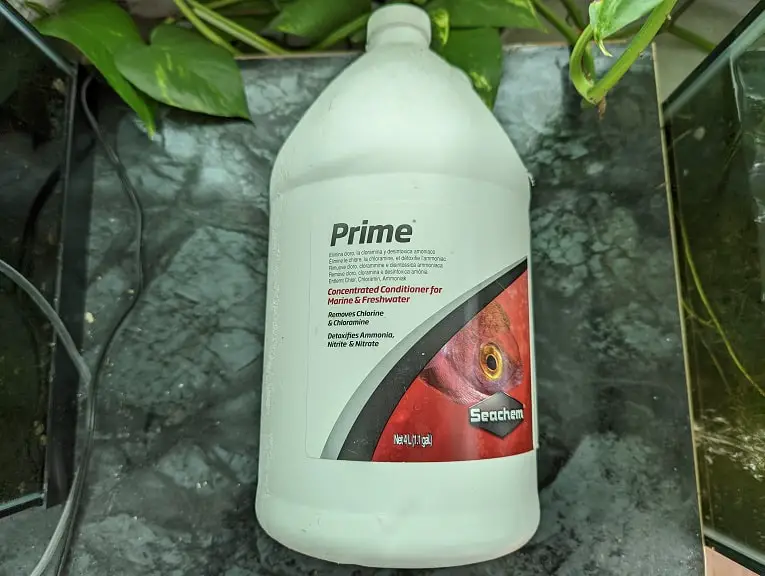Seachem Prime is designed to keep your pet fish and shrimps safe as it will remove the chlorine and chloramine from tap water. It can also detoxify heavy metals, ammonia, nitrites and nitrates.
If you think that this water conditioner is somehow killing your fish and/or shrimp, then you can check out this troubleshooting article form Aquarium Blueprints.
1. To start off, we recommend testing your tank waters to see if there are any issues.
If you are using a Nessler-based testing kit, then you need to wait at least 24 hours after dosing Prime in your tank to get an accurate ammonia reading.

2. If you still see traces of chloramine in your water, then we recommend that you try doubling the amount of Prime you put into your tank.
So, instead of 5 mL, you should be adding 10 mL of Prime for every 50 gallons or 200 liters of tank water in order to remove the high concentration of chloramine.
3. If you testing kit shows that you have more than 0 ppm of ammonia and/or nitrites, then there is an issue with your biological filtration.
Keep in mind that Prime will only detoxify ammonia and nitrites for a maximum of 48 hours. Afterwards, these nitrogen compounds will turn back into the original toxic forms.
4. Furthermore, if you have more than 2 ppm of ammonia and/or nitrites, then a normal dose of Prime may not be enough. Instead, you should be adding 25 mL of the water conditioner for every 50 gallons or 200 liters of tank water.
5. Just like the other two nitrogen compounds, nitrates will only be detoxified for up to 48 hours when you use Seachem Prime.
If you have more than 40 ppm of nitrates (or 20 ppm if you are keeping shrimps or more fragile fish), then you aquatic pets could end up being harmed if you don’t keep dosing Prime.
6. While you can use up to 5 times the normal dosage, going beyond that upper limit could lead to the deprivation of oxygen. Of course, your fish or shrimp will suffer if they can’t get enough oxygen.
7. If you are using Prime with another water conditioner or medication at the same time, then the combination may end up being toxic for your fish.
In this case, we suggest that you avoid using Prime with the other product.
8. If you let your Seachem Prime exposed to extreme temperatures and/or leave the container constantly opened, then it may be contaminated.
If you think that your Prime container has been spoiled, then it may be best to discard everything inside and then get yourself a brand-new Prime container.
